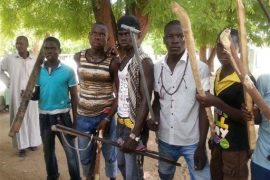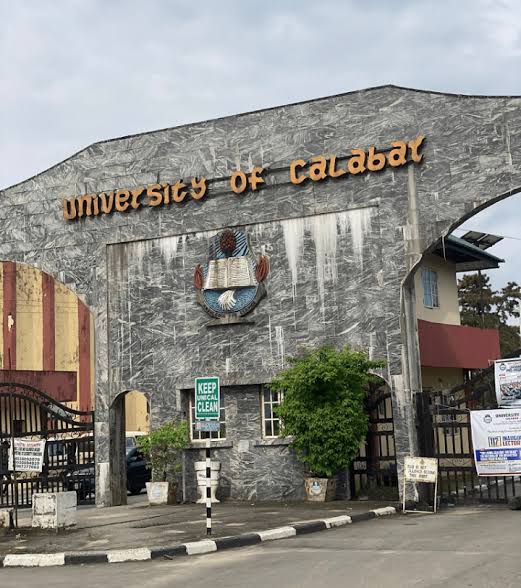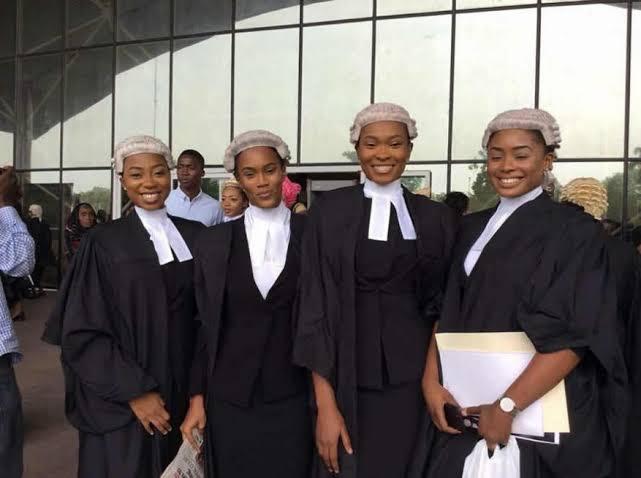SPECIAL REPORT: Many years after, Civilian JTF, Nigeria’s unsung heroes in fight against Boko Haram suffer neglect

By Justice Nwafor
With puffs of smoke intermittently reeling from his mouth, Yinusa Mohammed, 29, recalls the agony of the “war”
“It was terrible”, he said.
With deep frown and palpable angst written all over him, Yinusa relived how Boko Haram terrorists launched attacks on even the most vulnerable of persons. How the Nigerian army deployed soldiers, on land and air; how sleep became so far from their eyes even in the middle of nights.
He agonised how sound of gunshots, mortars became the only music they heard; how the name of his cherished religion – Islam – became bastardised, desecrated. How swaths of farm land and many economic ventures were abandoned.
At this point, Yinusa excused himself to light up another stick of cigarette, and our reporter paused his midget.
With a puff of smoke up in the air, the plastic white chair on which he seated properly adjusted, and his manly face set back in shape, Yinusa resumed.
“See, people died. I lost colleagues. I lost a lecturer. Students of University of Maiduguri died”, he told CRISPNG.
Yinusa is one of the 26,000 Civilian Joint Task Force, CJTF, members according to the Economist, who fought the Islamic terror group – Boko Haram – alongside the Nigerian army in the country’s North-East.
The Root
The fight against Boko Haram dates back to 2009 when Nigerian soldiers, arrested the proclaimed founder and leader of the group, Yusuf Mohammed and allegedly killed him.
Many reports emerged. Some alleged that Mr Yusuf died in Police detention, not in the hands of Nigerian soldiers, others reported that Nigerian soldiers shot and killed him.
However, there was a consensus by all and sundry that Mr Yusuf died in the hands of agents of Nigerian government.
Like a mustard seed which seems little but very powerful, the group grew. It got a new leader in Abubarka Shekau. This new leader led the group to an unprecedented growth, launching attacks that not just shocked Nigeria but the entire world.
It succeeded in entrenching a campaign of violence which shattered lives, spread fear, displaced millions and destroyed the social order across communities, towns and states it attacked. It’s attacks would later get it the toga of the deadliest terror group in the world, in 2015, by Global Terrorism Index.
At a point, the Nigerian army was almost brought to its knees by the group’s guerilla form of attack.
In the light of the this, the CJTF was formed in late 2013 – a period the terrorists had allegedly gained control of some towns in Borno State, which is reckoned to be the birthplace and strongest hold of the group.
The CJTF members comprised of men, especially youths, who were challenged by the continuous ravage and havoc the terrorists inflicted on their communities and towns.
“Our members included youths, adolescents, and even women. The old men were not involved because they were no longer productive. It was like a challenge to us all. Security is everybody’s business. So we volunteered to protect our towns and ourselves, too” Yinusa said.
We were targeted more than the Soldiers
Before the CJTF members are enlisted, they undergo a kind of training Mr Lawan Jaafar – the man who acts as their President – refers to as “basic” training by the Nigerian army.
During the basic training, they, however, are not given trainings on how to handle automatic weapons. Thus, they are not allowed to carry riffles.
They are only armed with wooden clubs, machetes and homemade weapons.
Some of them, like Yinusa who served as an information gathering agent did not carry arms at all.
“As a student, then, at the University of Maiduguri, I served as an int, in sector ten, around Government reserved area of Maiduguri. I did not carry arms”, he said.
According to the BBC, about 650 of them have been killed in the violence. Confronting a terror group that fights with automatic riffles like the Ak47 and other sophisticated weapons with crude weapons like bows, clubs and locally fabricated weapons, could be seen as a suicide mission. But the CJTF members were not deterred. They not only manned checkpoints, spotting potential suicide bombers, but operated alongside the army in the bush where Boko Haram militants take shelter.
Recalling the dangers he, and his colleagues faced before he left school, and, eventually, quit CJTF in 2016, Yinusa revealed that, without any weapon, he and his colleagues were targeted even more than the soldiers.
“The soldiers are professionals with the right training. They carry sophisticated weapons. But we don’t have that kind of training and didn’t carry such weapons. So we were more exposed to dangers than even the soldiers.”
Neglected Impact

The Nigerian government recently claimed that Boko Haram has been “defeated”. It attributed the feat to the relentless effort of the troops fighting in the terrorists in the North-East. And the impact of the CJTF was downplayed.
The contributions and tireless efforts of these dedicated people have not been recognised, adequately.
According to Yinusa, the much achieved by the Nigerian army would not have been, if not for the contributions and efforts of the CJTF. They not only moved into the bushes – the hideouts of the terrorists – with little or no weapons alongside the soldiers, but they provided intelligence. They gave the soldiers very vital information that led to the arrest of some terrorists. Some sucide bombers were intercepted through the information provided by some members of CJTF.
Despite only 1,800 out of the 26,000 of them being on the payroll of the federal government of Nigeria for a monthly allowance of meager 50 dollars, they stayed committed.
Many – unlike Yinusa, who is currently undergoing the one-year compulsory National Youths Service, after successfully being graduated by the University of Maiduguri – died in the fight. Some have not been successfully reintegrated after abandoning and eventually losing their means of livelihood to the fight.
Although the Nigerian army has absorbed some into the military, and the United Nations Development Programme, UNDP, recently, organised an empowerment programe for some, in Jos, more need to be done to “sing” these heroes.
As Mr Jaafar warned in September 2017, “We’re going to have problems with armed robbery and kidnapping – because if a man has no job, he will do anything to survive,” if nothing is done to reintegrate and appreciate these people.
Unless their sacrifices are recognised, they could end up presenting a new security threat to an already devastated region – North-East – and Nigeria as a whole.
PS: Yinusa Mohammed is not his original name. His name was changed, as requested by him, to protect his identity.




